A Little Wong Kar-wai Primer
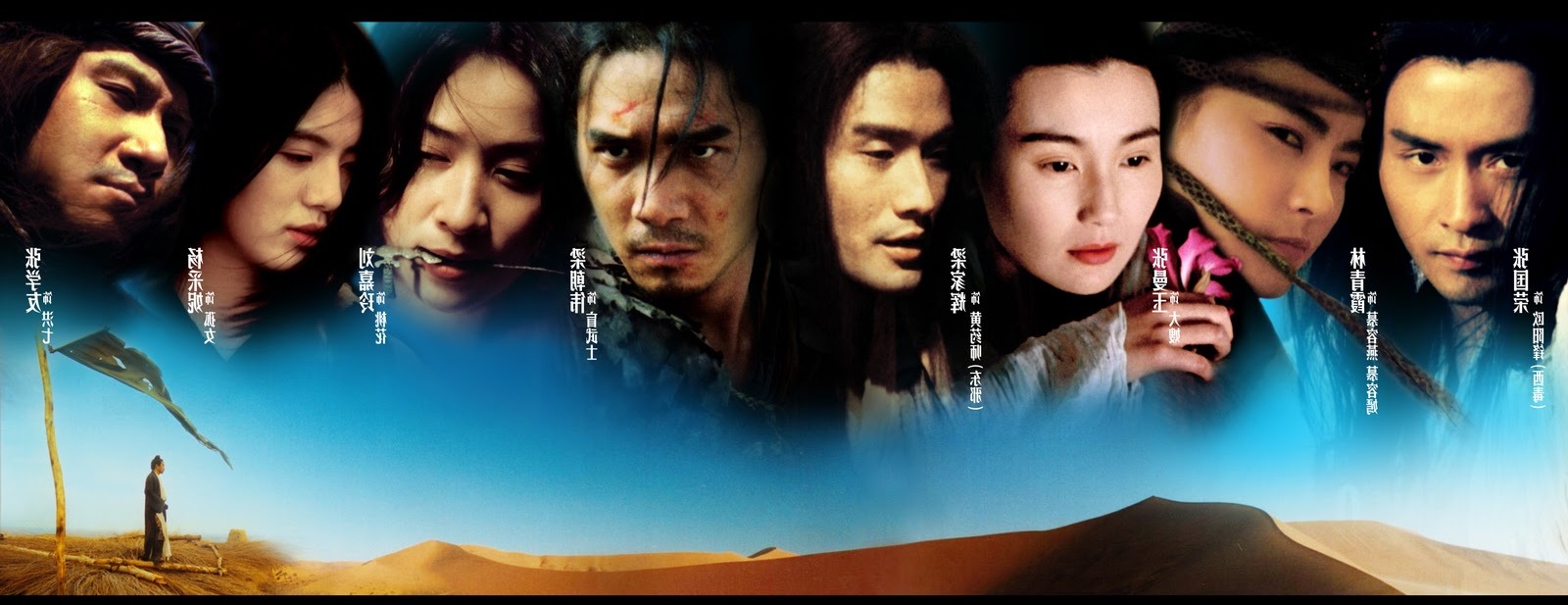
Wong Kar-wai is my favorite director: the darling of art film aficionados, the despair of fans who wait for decades for him to actually finish a movie, and the master of sound+vision alchemy, creating lush paintings of color, music, and emotion. So here’s a small introduction to his body of film work to perhaps whet your appetite to give his films a try. First up: As Tears Go By, WKW’s first film as director. A triad film influenced by both Mean Streets (Scorsese) and Stranger than Paradise (Jarmusch), Wong flirts with his developing style, a reinterpretation of standard HK film genres with a singular approach to the use of color, music, and dialogue.
Days of Being Wild is the first of WKW’s many collaborations with cinematographer Christopher Doyle, who — along with production designer and editor William Chang — formed the artistic triumvirate of Wong’s oeuvre. Set in 1960, the film evokes the “ah fei” (young hoodlum) HK films popular in the ’50s, the novels of Manuel Puig, and the movies starring James Dean (notably Rebel Without a Cause, the Chinese title of which film was also the title used for this piece). Days is a sultry, moody study of unrequited love and the passing of time. And — oh! — the music … the image of Leslie Cheung doing the cha-cha to Xavier Cugat’s “Maria Elena” before a mirror, in his underwear, just takes your breath away.
Chungking Express, filmed quickly in a break of post-editing WKW’s singular foray into the wuxia genre, Ashes of Time [more on that later!], gained the director wider renown outside Hong Kong, partly because it generated the interest of Quentin Tarantino, who bought the international distribution rights. As he does with all of his films, Wong transcends genre, beginning with the seeds of a Haruki Murakami short story and creating a diptych of quirky love stories set in a blurring, vibrantly chaotic Hong Kong. The viewer can’t help but be charmed and bemused by the characters, whether it's Faye Wong dancing with a ketchup bottle to “California Dreaming,” Takeshi Kaneshiro consuming a month’s worth of canned pineapple, or Tony Leung chiding a bar of soap for losing weight.
Why do I love Fallen Angels? Is it Takeshi Kaneshiro massaging a pig? Karen Mok in her carrot-colored hair starting a fight in a cafe? Michelle Reis obsessing over a jukebox playing the Canto pop hit “Mong Ge Ta (Forget Him)” — a message from her partner in crime telling her he’s quitting their assassin-for-hire gig? Or Leon Lei, swaggering into a restaurant with guns blazing, looking cool as ice? They’re probably all doomed, but they’re gorgeous.
The theme of exile predominated in Hong Kong as 1997 approached, and WKW decided to make his next film in Argentina. Leslie Cheung & Tony Leung’s gay couple are anything but Happy Together, as they bicker and make up, only to break up again, in a baroque vision of Buenos Aires that pulsates with the spontaneity of a Pollack painting (courtesy of Doyle’s spectacular cinematography). And the tango has never been so heartbreakingly sexy.
In the Mood for Love is probably the best known WKW film to US audiences; it was more financially successful than any of his previous projects, and also received a ton of major awards. A not-quite-love affair between Maggie Cheung’s and Tony Leung’s characters is set in 1962 Hong Kong inside a community of Shanghai ex-pats, punctuated by stunning cinematography (so many gorgeous qipao!) and the music of Nat King Cole. On my first visit to Hong Kong, the highlight of a WKW-infused evening was dinner at the Goldfinch restaurant, the setting for several scenes in the movie. Like Maggie Chueng’s character, I ordered the steak.
The title of WKW’s next film, 2046, refers to both a year in the future (50 years after the political turnover of Hong Kong to mainland China), and a hotel room (where the two protagonists of IN THE MOOD FOR LOVE met to discuss their spouses’ infidelity). The film is also the last part of the loose trilogy about HK in the 1960s that began with Days of Being Wild. Characters from the earlier films appear; new characters share their names; personalities change, morph into other characters, and remain the same; time travelers find love as elusive in the past as in the future. 2046 is WKW’s version of science fiction, and like everything the director does, it’s literary, eclectic, somewhat bizarre, and very beautiful.
Not the best choice for anyone new to Wong Kar-wai, and considered a minor effort by most critics, My Blueberry Nights, is the director’s first English language project. Worth a watch, however, as it explores WKW’s favorite themes of love, loss, and memory, using an ensemble of beautiful actors (Jude Law, Norah Jones, Natalie Portman, Rachel Weisz, David Strathairn…) in a scattering of cafes and casinos across the U.S. And, oh yes, there is food, glorious food, photographed (as one critic noted) as though painted by Van Gogh in neon.
WKW is as adept at creating short films as he is with features (as contradictory as that sounds given the time he takes to complete his film projects), and, since the mid-1990s, he has adapted his style into commercials for Motorola, Lacoste, Philips, Lancôme, Chivas Regal, and other high-end companies, using international stars including Chang Chen, Faye Wong, Clive Owen, Karen Mok, Forest Whitaker, Amélie Daure, and Tadanobu Asano. The most well-known of these, “The Follow,” is included in a 2002 collection of eight BMW ads (The Hire) by different film directors (John Woo, Ang Lee, Guy Ritchie, Alejandro González Iñárritu, John Frankenheimer, Tony Scott, and WKW), and featuring Clive Owen as The Driver. Most of these are action shorts, but Wong contributes a mesmerizing Chandler-esque film noir piece. WKW has done one music video, “Six Days” for DJ Shadow, and a handful of short films for anthologies (Eros, To Each His Own Cinema). Even his 30 second spots cannot be mistaken for any other director’s work.
Ip Man, the Grandmaster of wing chun (and probably best known in the West as being Bruce Lee’s teacher), has been the subject of films since the 1970s, but there’s been a serious resurgence in the past ten years, with films by several Hong Kong directors as well as at least one TV series. The best known is the Ip Man series (three films released and a fourth in the works) directed by Wilson Yip and starring Donnie Yen (who, as any STAR WARS fan now knows, is a seriously bad-ass martial artist). WKW, on the other hand, made The Grandmaster, a kung fu film as romantic melodrama, starring Tony Leung and Zhang Ziyi in a Shanghai setting straight out of von Sternberg. Like all of Wong’s films, it’s atmospheric, sumptuous, and melancholy, and basically all about time.
I left Ashes of Time as my last post in this series, since it’s my absolute favorite film. Released in 1994, after two years of grueling location filming and way over budget, this is WKW’s deconstruction of the swordplay film genre. Wong takes a handful of famous characters from an enormously popular “wuxi plan” (sword martial arts) novel by Jin Yong, and creates a back history that both compliments and contradicts the paths leading to their future roles in the printed story. It’s an action film that focuses on inaction, with protagonists who all suffer from the ravages of memory and regret. It’s also one of the most beautiful films ever made. The cast, a collection of the most popular actors in Hong Kong cinema (Leslie Cheung, Brigitte Lin, Maggie Cheung, the two Tony Leungs, Carina Lau, Jacky Cheung, and Charlie Yeung), is mesmerizing. The music, evoking the spaghetti Western themes of Ennio Morricone, is perfect. Christopher Doyle’s cinematography has never been better, whether he’s filming an impressionistic explosion of violence in the desert or the texture of a woven bird cage hanging in an inn. This is often said to be a difficult film, and it requires more than one viewing to understand the complexities of theme and structure that Wong creates. But for those willing to make the effort, the reward is worth it.

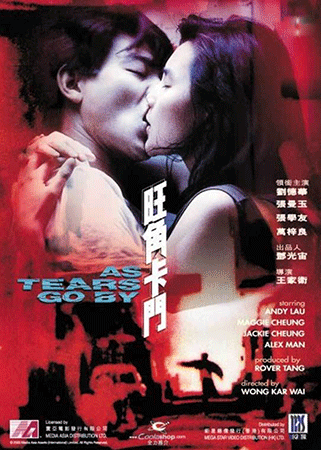
As Tears Go By

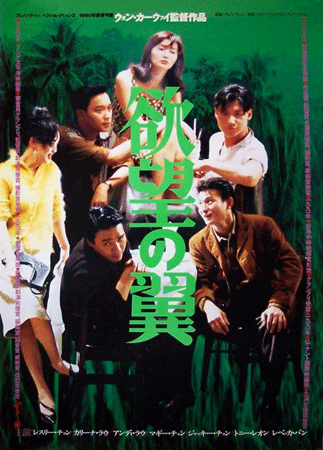
Days of Being Wild

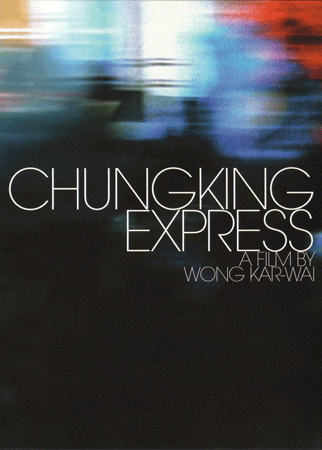
Chungking Express

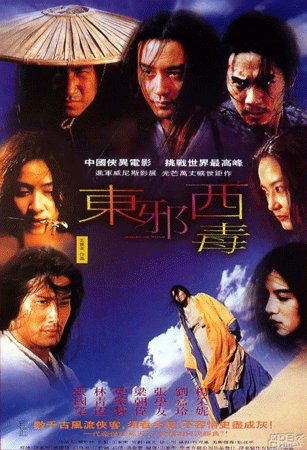
Ashes of Time

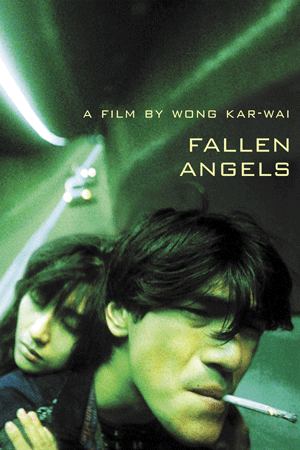
Fallen Angels

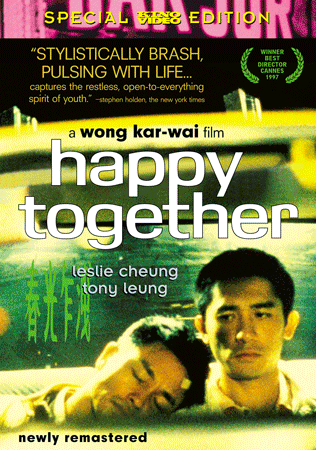
Happy Together

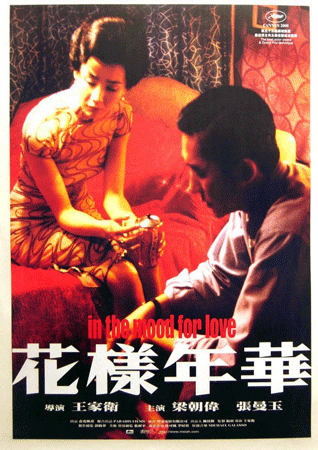
In the Mood for Love

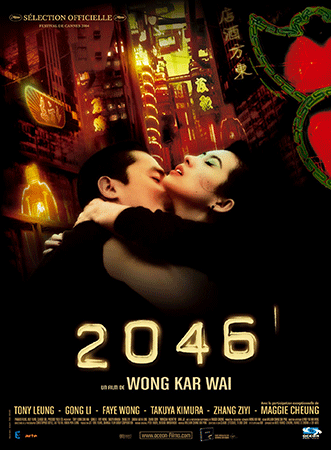
2046

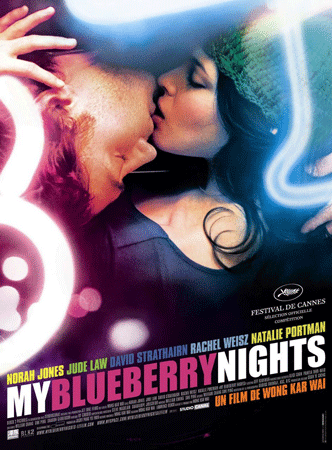
My Blueberry Nights

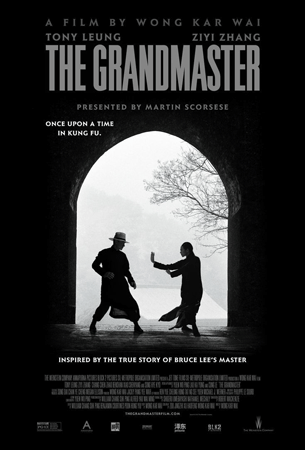
The Grandmaster
References
Overview
Retrospective: Films of Wong Kar-waiUnder the Influence: Barry Jenkins on Wong Kar-wai
British Film Institute: Where to begin with Wong Kar-wai
Film Reviews
Review: Days of Being Wild (1990)Review: Chungking Express (1994)
Review: Ashes of Time (1995)
Review: Happy Together (1997)
Review: In the Mood for Love (2000)
Review: 2046 (2004)
Review: My Blueberry Nights (2007)
Review: Ashes of Time Redux (2008)
Review: The Grandmaster (2013)
Short Films
“The Hire”BMW is bringing back its short film series, The Hire, for one more job
Chivas Regal ad DEJAVU (Youtube Video)
Philips: There’s Only One Sun
There’s Only One Sun (Youtube Video)

